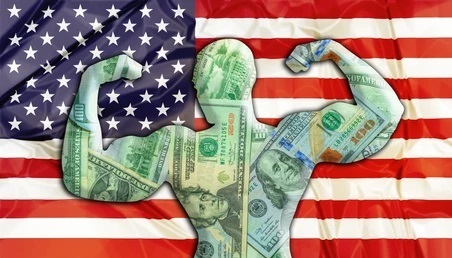The US Dollar is Very Strong

The value of the US dollar has risen sharply, compared to currencies of many other countries including the British pound, the Japanese yen, and the euro. A stronger dollar sounds like a good thing, like seeing results from all those hours you’ve spent in the gym. However, currency markets are not weightlifting and being strong is not without negative consequences if you’re the dollar. In fact, it may be possible for the dollar to become too strong for its own good. Now is the time to start growing your USD with some good ‘blue chip’ type investment vehicles. US Fed chair Jerome Powell has signaled a delay in expected interest rate cuts. He said the Fed needs more time to be confident that its fight against inflation is working. An analyst suggests excess money, a result of pandemic-era policies, may be drained from the economy this year.
The US dollar or what we call in Panama, the Balboa, has been gaining strength against the currencies of other major economies. The dollar is strong because the US economy is healthier on the outside, than those of many other countries and because the Federal Reserve keeps raising interest rates. We all know about the 34 trillion dollar debt that can never be paid down, but still the USD is considered the strongest currency on the planet in some circles. A strong dollar hurts stocks of US companies that operate internationally and may help stocks of companies that export products to the US. The dollar may remain strong until the Federal Reserve changes policy. Over the last decade, U.S. debt interest payments have more than doubled amid vast government spending during the pandemic crisis. As debt payments continue to soar, the Congressional Budget Office (CBO) reported that debt servicing costs surpassed defense spending for the first time ever this year.
The strength of the US currency risks fracturing global trade. When does a strong dollar become too strong? “Right now” would be the cry of most emerging-market currencies, not to mention policymakers in Japan. Even the European Central Bank says it’s paying attention to the foreign exchange market. The relentless rise of Treasury yields is translating directly into dollar strength, laying waste to the value of other currencies. It’s not a crisis yet; but trying to call a top is futile, and the risk of something breaking is increasing. As the US economy becomes ever more internally strong and self-obsessed, emerging-market economies are likely to suffer first and most.





